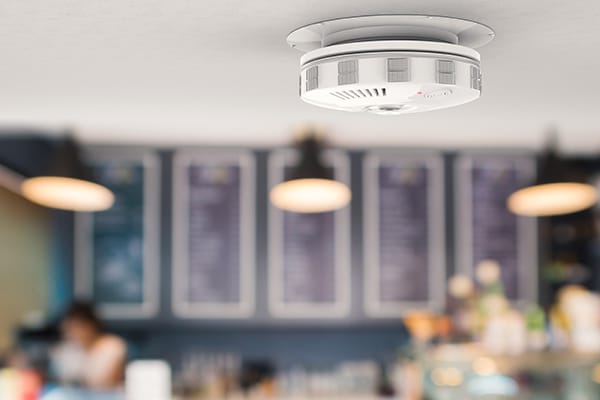Carbon monoxide (CO) is an odorless, colorless gas produced by the burning of fossil fuels such as oil, coal, and gas. Oil, coal, and gas appliances in your home — such as water heaters, furnaces, clothes dryers, ovens or stoves, or refrigerators — can give off CO if there is a leak or blockage in the vents. Outside household items like cars and generators can also give off CO. Because CO has no smell and is invisible to the naked eye, it can be hard to tell if there is exposure in your home. Here are some tips from the CDC on how to prevent a CO scare in your home:
1. Get a CO detector.
- These should be placed right outside each bedroom and one every level so you can hear it go off if you are sleeping, as well as hear it throughout the home.
- If your CO detector goes off, leave your home immediately and call 911.
- Check the batteries in your detector in the fall and spring. Daylights Savings Time is a great time to test.
- Replace your detector every five years.
2. Keep an eye on all appliances that use oil, coal, and gas.
- Have them all checked by a trusted technician every year to ensure there are no blocks or leaks.
- Never fix a suspected leak or blockage yourself, instead call your qualified technician.
- Have your furnace looked at once a year if you can’t have all of your appliances checked.
3. Never use chemical heaters, charcoal, portable gas camp stoves or a generator in your home.
If you do have a generator, make sure that is at least 20 feet away from your home.
If you do have a generator, you should also get a backup, battery operated, CO detector for your home due to the increased risk of CO poisoning.
4. Do not use your gas oven or stove top to heat your home.
5. Never leave your car running in your garage
- This includes if your garage is open. If your garage is attached to your house it is possible for the exhaust to leak into your home.
Dr. Ryan Brimeyer of The Iowa Clinic Pulmonary Department, says, “small children and animals are particularly susceptible to carbon monoxide poisoning and may show signs before adults are affected. Early recognition and treatment of the signs and symptoms of carbon monoxide poisoning can save lives.” Know the signs of CO poisoning – especially if multiple people in your home are experiencing similar symptoms – so you can get to a hospital as soon as possible. CO poisoning mimics flu-like symptoms such as:
- Headache
- Dizziness
- Weakness
- Nausea and/or vomiting
- Confusion
To learn more about carbon monoxide poisoning visit the CDC.
Carbon Monoxide Poisoning. Retrieved from https://www.cdc.gov/co/default.htm
Energy Sources. Retrieved from https://www.energy.gov/science-innovation/energy-sources/fossil
Carbon Monoxide. Retrieved from https://www.extension.iastate.edu/Pages/communications/CO/co1.html
Marshalltown fire chief now says no one died in carbon monoxide poisoning. Retrieved from http://www.desmoinesregister.com/story/news/2017/11/08/marshalltown-fire-chief-admits-no-one-died-carbon-monoxide-poisoning/845363001/


